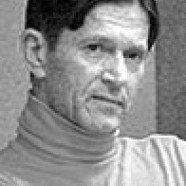
Book Review
The True Believer: Thoughts on the Nature of Mass Movements
By Eric Hoffer
Harper & Row (1951)
pp 177
Born in 1902, Eric Hoffer lost his sight as an infant in the accident that resulted in his mother’s death. When his sight inexplicably returned when he was fifteen, he began lifelong habits of reading, writing, and traveling “up and down this great land, dodging hunger and grieving over the world.”
Surviving the Great Depression by working odd jobs, Hoffer became a longshoreman in San Francisco when World War 2 began. He left the docks in 1964 and became an adjunct professor at the University of California at Berkeley, despite having no formal education himself.
Hoffer outlines a cohesive theory about the transformative social change of mass movements. The True Believer argues that “A mass movement attracts and holds a following not because it can satisfy the desire for self-advancement, but because it can satisfy the passion for self-renunciation.” These movements all require a fanatic whose personal failings lead him to join a cause, any cause.
Hoffer came to public attention, and drew the interest of the young JFK, with the 1951 publication of his first book, The True Believer: Thoughts on the Nature of Mass Movements. JFK called it “a great and important book” and the Harvard historian Arthur M Schlesinger said, “This brilliant and original inquiry into the nature of mass movements is a genuine contribution to our social thought.”
Multiple critics have praised the book for a common sense approach that was born of the author’s experience as a working man who understood America and Life as few intellectuals can.









